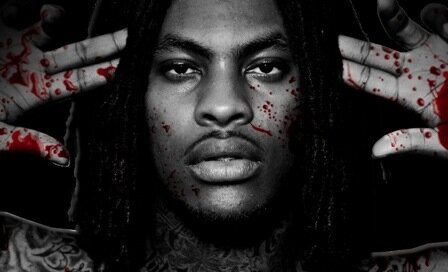
Flockaveli is a post-Crunk masterpiece that fixes the failures of the angry pop-rap genre best known for raucous, high-energy hits like “Get Low.” That’s to say, the shit on Flockaveli’s actually out-there and horrifying, while Crunk got points for just being relatively rowdy. None of those Crunk songs, at least once it moved from Memphis to Atlanta and for all intensive purpose got incorporated, had Buck music’s menace, the weight of Bounce, or the relentlessness of the Hardcore Lil Jon occasionally referenced as an influence. Notice, “Smoke, Drank,” the Lil Jon production on Flockaveli, doesn’t even try to compete with the energy of the rest of the album, it’s just this weak, synthy thing.
Hold up though. This is not one more contribution to the contrarian rap-nerd echo chamber about how this is some shit you just gotta be on or else you’re clueless “mane”, because that’s not what this album is anyway. This is not a rap album, it’s a dance album. A really well put-together dance record that has the uncompromising spirit and worker-bee innovation common in the country’s many regional dance scenes, who despite their differences, are collectively investigating darker, druggier sonic territory for better or worse: The moaning stumbling juke of DJ Nate and others, Araabmuzik’s drum n’ bass MPC blasts, Moombahton’s slowed-fast grooves, Clams Casino and company’s production for Lil B, DJ Burn One’s Pimp C meets Aphex Twin country rap tunes, whatever the fuck Detroit Techno’s doing these days, the still-living and breathing Jerkin’ movement, Chillwave’s depressive dance style, the stacked-tracked terror of Baltimore Club’s youth scene, Witch-house’s middle-school goth thrills, woozy Huntsville trance-rap geniuses The Block Beataz…to you know, name a few.
Appropriately though, given rap’s ever-increasing fragmentation and Waka Flocka’s anti-social rap style, Flockaveli doesn’t belong to a region or scene, but almost entirely to the two minds behind the thing: Waka and producer Lex Luger. Nothing else sounds like this really. If these dudes were holed up in a studio somewhere, and not guys holed-up in a studio somewhere who’ve made a bunch of hits in a very short time, there’d be some wonky, vaguely descriptive name for what they’re doing on “Bustin’ At Em”–an explosion of guitar shards and stuck together drums–or “Grove St. Party”–all slinky synths fighting with layers of shouts and chants-and it’d be far more pretentious than “post-Crunk.” As it stands, here’s a terrifying, energizing party record that’s available at Best Buy in a musical climate that rarely ever lets stuff like this appear unadulterated in any form other than handmade mix CDs and .rar files. So, rejoice.




